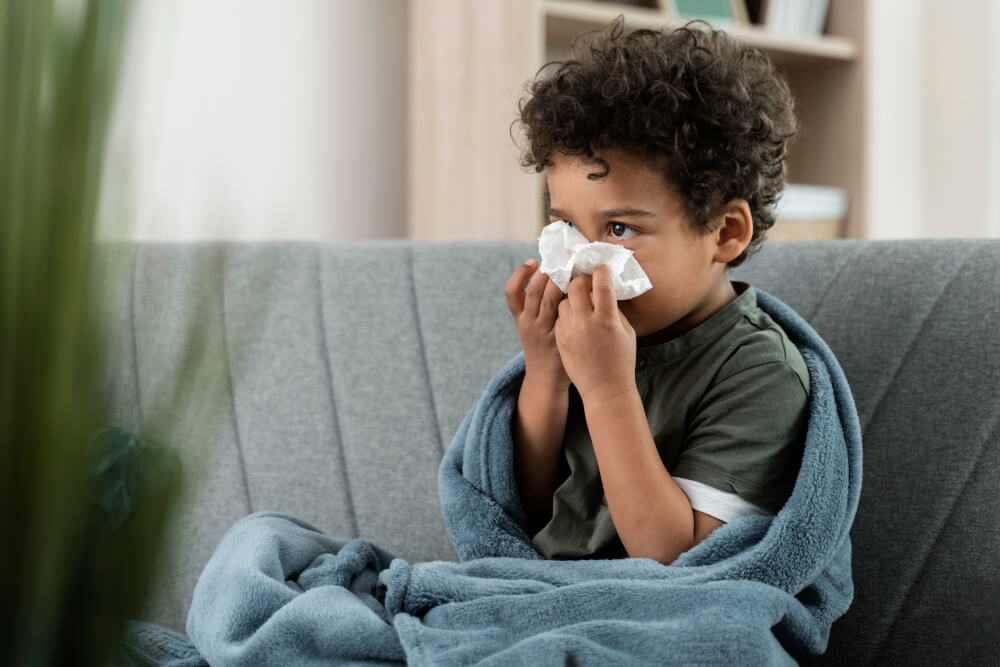Navigating Childhood Allergies: The Role of Your Pediatrician
Allergies are common in children, affecting their overall well-being and daily life. From mild skin reactions to severe respiratory issues, allergies can be a significant challenge for both children and their parents. Pediatricians are at the forefront of managing childhood allergies, providing essential care and guidance.

Common Types of Childhood Allergies
Childhood allergies can manifest in various forms:
Food Allergies: Food allergies occur when the immune system reacts to specific food proteins. Common allergens include milk, eggs, peanuts, tree nuts, wheat, soy, fish, and shellfish. Symptoms can range from mild skin reactions to severe allergic reactions (anaphylaxis).
Allergic Rhinitis (Hay Fever): Allergic rhinitis is an allergic reaction to airborne allergens such as pollen, dust mites, pet dander, and mold. Symptoms include sneezing, runny nose, itchy eyes, and congestion.
Atopic Dermatitis (Eczema): Eczema is a chronic skin condition characterized by itchy, red, and inflamed patches of skin. It is often associated with allergies.
Asthma: Asthma is a chronic respiratory condition characterized by inflammation of the airways, leading to wheezing, shortness of breath, and chest tightness. It is often triggered by allergens.
Drug Allergies: Some children may develop allergic reactions to certain medications. These reactions can range from mild skin rashes to severe allergic reactions.
Symptoms of Childhood Allergies
Allergy symptoms can vary depending on the type of allergy and the child’s sensitivity. Common symptoms include:
- Sneezing
- Runny nose
- Itchy eyes
- Congestion
- Hives or rash
- Wheezing
- Difficulty breathing
- Swelling of the face, lips, or tongue (anaphylaxis)
The Role of the Pediatrician

Pediatricians play a crucial role in diagnosing and managing childhood allergies. They will conduct a thorough medical history, perform a physical examination, and may recommend allergy testing. Once diagnosed, pediatricians work closely with parents to develop a comprehensive allergy management plan.
Allergy Testing and Diagnosis
To accurately diagnose allergies, pediatricians may recommend allergy testing. Common allergy tests include:
- Skin prick test: A small amount of allergen is pricked into the skin to assess for a reaction.
- Blood test: Measures specific antibodies in the blood related to allergens.
- Food challenge: Involves gradually introducing suspected allergenic foods under medical supervision to confirm or rule out food allergies.
Managing Childhood Allergies
Managing childhood allergies involves a combination of strategies:
- Allergen Avoidance: Reducing exposure to allergens can help manage symptoms. This may involve using air purifiers, dust mite covers, and avoiding triggers.
- Medications: Over-the-counter antihistamines, decongestants, and corticosteroids can help manage allergy symptoms. For more severe allergies, prescription medications may be necessary.
- Allergy Shots (Immunotherapy): Involves gradually introducing increasing doses of allergens to build immunity over time.
- Emergency Preparedness: Children with severe allergies should carry an epinephrine auto-injector (EpiPen) in case of anaphylaxis.
The Importance of Early Intervention
Early diagnosis and management of childhood allergies are essential for preventing complications and improving quality of life. Pediatricians can provide guidance on how to identify potential allergens, manage symptoms, and develop long-term strategies for allergy control.
By working closely with your pediatrician, you can effectively manage your child’s allergies and help them live a full and active life.
